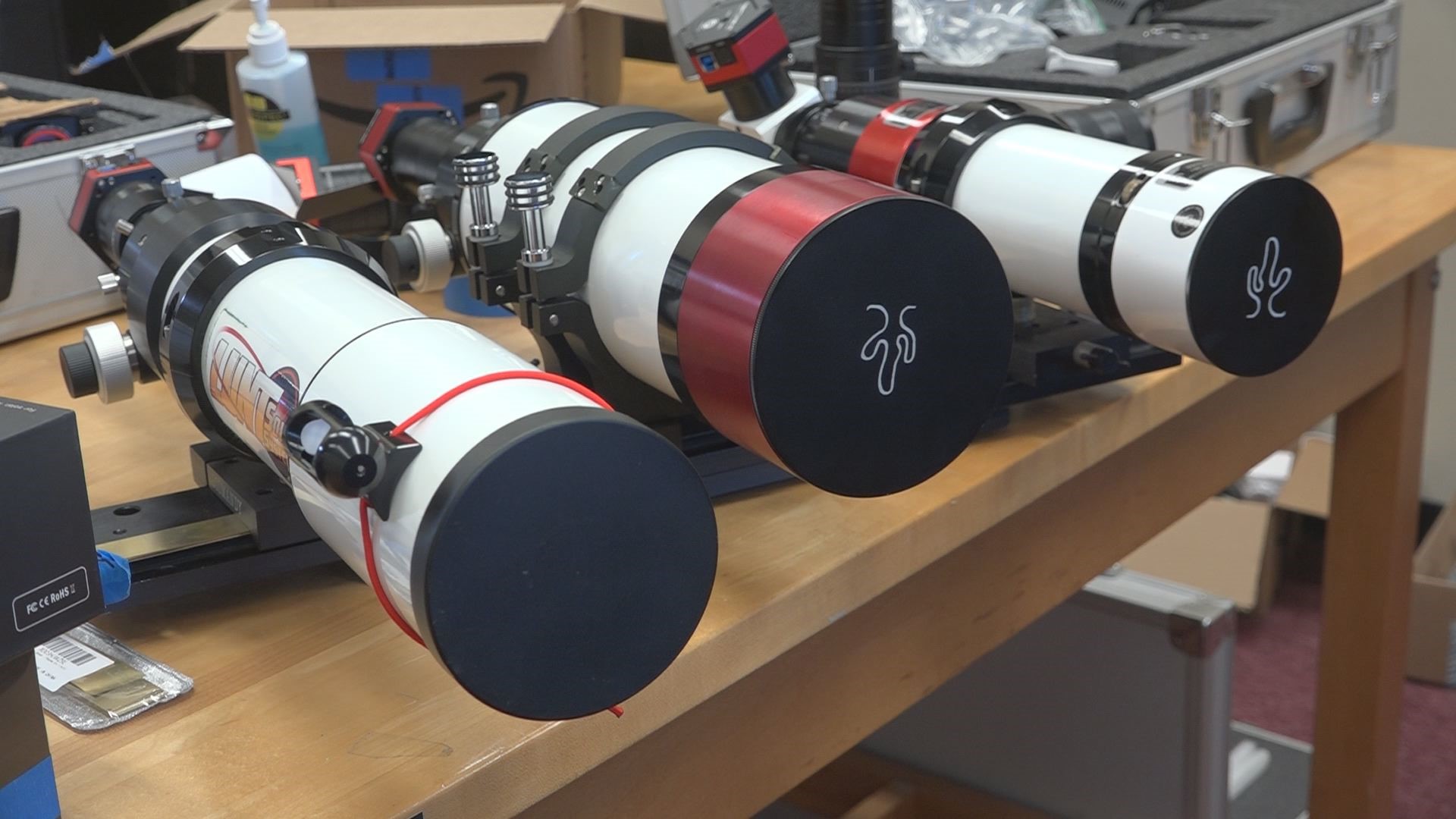CARBONDALE, Ill. — Following the 2024 Great American Eclipse, parts of southern Illinois won’t experience an eclipse for another 300 years, so SIU researchers are working to ensure that no student is left in the dark at the moment of totality.
At Wingate Elementary in Mascoutah, Illinois, students from kindergarten through fifth grade are doing their homework ahead of the April 8 eclipse.
“Our older kids understand it a little bit more,” Wingate Principal Kim Enriquez said. “Some of our little ones weren’t born the last time there was an eclipse.”
That’s why Enriquez is encouraging her staff to use the school’s position near the path of totality as a teaching tool.
“Teachers are going to be showing videos looking at how it happens, why it happens, how often it happens,” Enriquez said. “They’ll be going outside at different times in the afternoon to see the differences that are taking place.”
“We’re almost twice as long as 2017, so it will be darker, you’ll see more stars,” Southern Illinois University researcher Dr. Corinne Brevik said. “Planets will come out. You’ll get 360 degrees of sunset.”
Because clouds are always a concern with any eclipse, Southern Illinois University-Carbondale is partnering with NASA to stream the eclipse to classrooms across the world regardless of their distance from totality.
“We have 80 telescopes placed across the entire continent of North America, so we will be imaging the eclipse from the moment it hits Mazatlan, Mexico, all the way until it leaves Canada,” Brevik said.
The live feed will feature interviews with NASA scientists, who will be able to add context to the different color dimensions captured by specialized lenses that allow them to study the sun at the moment of totality.
“The research we’re doing can only be done during an eclipse,” Brevik said. “There’s a part of the atmosphere of the sun that we don’t normally get to see, so the eclipse gives us the opportunity to study that part. As an educator, the eclipse gives us an opportunity to study that part. As an educator, we also have the opportunity to work with the community, work with schools, and get them excited about science.”
“We want kids to realize that this isn’t going to happen again for a long time,” Enriquez said. “We need to enjoy it and learn as much about it as we can at the time.”
For more information about SIU’s live stream of the eclipse, click here.
Top St. Louis headlines
Get the latest news and details throughout the St. Louis area from 5 On Your Side broadcasts here.

